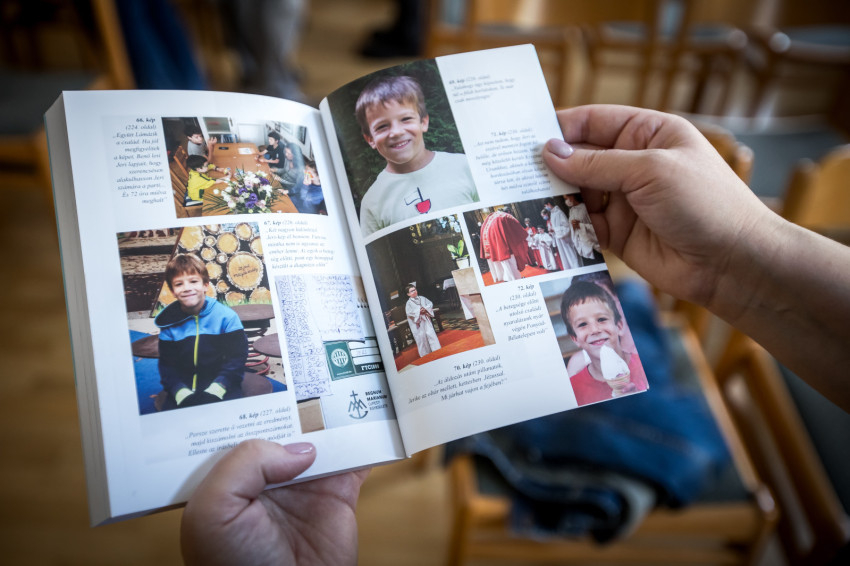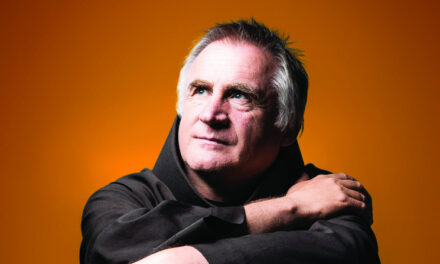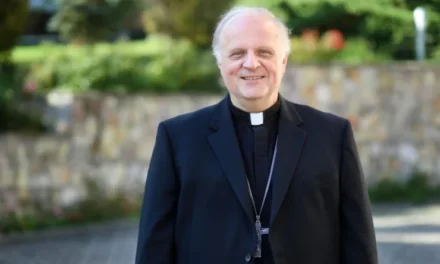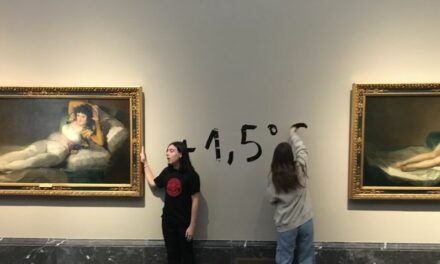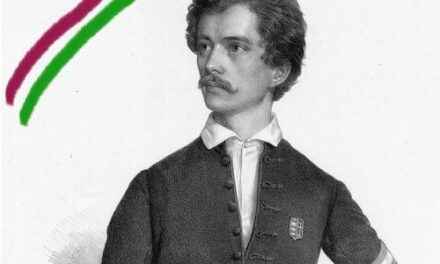The heart-wrenching and uplifting story was written by life.
They say the loss of a child is the greatest tragedy that can befall a parent. Levente Koncz, who has five children, and his wife, Helga, found out on October 26, 2020, one day before the head of the family's 48th birthday, that their youngest child, their six-and-a-half-year-old son Jeromos, had a brain tumor, and it was large and in the wrong place. Little Jeri came home to her Creator half a year later, on May 25, 2021.
The children immediately get to heaven - Jeri's book was presented to great interest . The book was born the day after the medical diagnosis was made as a series of (only minimally edited) entries written on a family-friends mailing list, supplemented by some personal reflections. According to the ear text
"The heart-wrenching and uplifting story was written by life, the diary stream compiled from the father's letters gives an account of internal struggles, pain, family togetherness, love, human hope, divine intention, will, and release with unsought honesty."
At the book launch, Péter Csillag, the editor of the publication, talked to the author, Jeri's father, and neurosurgeon András Csókay, chief physician of the Salgótarján Hospital, and Miklós Garami, neuro-oncologist of the SOTE Tűzoltó Street Pediatric Clinic, also chief physician, the boy's treating physician.
Levente Koncz said about the birth of the book: as the flow of letters grew, more and more people encouraged that it should be published in book form, and Péter Csillag gave the final push when he said: Jeri's story can be a witness.
The title of the book comes from András Csókay. The well-known neurosurgeon recalled that ten years ago, on February 2, 2014, their ten-year-old son, Marci, drowned in the twenty-centimeter water of their garden pool as a result of an epileptic seizure. He and his wife were in a terrible state of mind. The first ray of hope arrived the next day: a friend visited them and said: "one thing is certain, the children will go to heaven immediately" .
"Why do you say that?" I asked him. "Because Jesus said so. came the answer. "Unless you become like children, you will not enter the kingdom of heaven!"
Doctor Csókay believes that both his little son and Jeri "jumped over this level", it is impossible that their souls were burdened with such a serious sin that they had to wait to go to heaven. This saying calmed András Csókay. He confesses: We must take every word of Jesus seriously, if he says something, then it is so. And a Jesuit father asked him: "My Andrisk, don't envy this child from Jesus!" It was very difficult for him to understand this, but he is now of the same opinion. He also recalled that ten years ago, during a devotional service in the St. Stephen's Basilica, Jesus appeared before him in the wafer, put his arms around the shoulders of his little son, who died tragically a few weeks earlier, and said:
"You see right, Dad." "It was peace and true joy for me: a moment when you know and feel the kingdom of God, the eternal life in which we are already in"
said Doctor Csókay. He added: this book runs the thoughts here.
Miklós Garami, Jeri's treating doctor, claims that his workplace is the best medical institution in Hungary, two-thirds of the children with cancer are treated here, and almost all of the children with brain tumors come to them. He recalled: when he met Jeri and his parents for the first time, he immediately felt the special radiation of love emanating from them, helping each other. He later experienced this with the brothers as well. It is a huge dilemma for the doctor: if a child has such a short life, should the doctor take the child away from the family, or is it better if he spends the last period of his fleeting life at home with his family? Today, he believes that the family should be told honestly that it is not certain that they will be able to cure their sick child, especially if he has a brain tumor.
They provide their child with the most modern therapy in the world, which cures most children. But they cannot promise whether their child will be among them. When they see that there is no hope, they change and advise the family: the child should spend the remaining short time surrounded by their compassionate love and care. Just as Jeromos was surrounded by such spirit by his parents and siblings.
According to that father's memories, little Jeri was like every six-year-old child, a "ball of love", and like every smallest child, everyone loved him and surrounded him with their admiration. He was a peacemaker among his older brothers. What made him different from the other six-year-olds was his special love of sports - he was a fan of Fradi, Dénes Dibusz arranged for him to be present at a championship, and Dávid Sigér gave him a signed, real match shirt - he was well versed in many sports, "he was a theoretical expert". he could recall the dates, results, and scorers of the most important matches, but he was not only an "armchair buffer", but also had an extraordinary flair for ball games, soccer, and volleyball. And what was especially nice to the math teacher's father was that Jerin had an exceptional talent for mathematics, she loved to count, she added four-digit numbers in her head.
It was said at the book launch: the nearby teddy bear soccer field was a particularly nice place for Jeri. Since his death, the Jeromos Cup has been organized there on his name day, to which nationally renowned players from Fradi also come.
To Péter Csillag's question to whom he would recommend the book, Levente Koncz answered: his book is not an easy read. Jerome's suffering and death were not meaningless.
"I believe that many of us have become better people because of him. This book was created to bear witness to life, death, the power of community and the hope that we do not fall into nothingness after our death. Recalling Jeri's figure, his way of the cross today is at least as uplifting as it is painful. May this story give strength and encouragement to those who find themselves in a similar situation or are experiencing any other crisis that turns their lives upside down. There is comfort even for the greatest pain, there is healing for even the deepest grief.”
The book was published by Rézbong Kiadó. If everything goes according to plan, the volume will be available in bookstores and major chains, but it can also be ordered from the publisher and purchased from the Koncz family. The family and the publisher donated all the income generated in addition to the direct expenses - in consultation with the chief physician Miklós Garami - to the Playhouse Foundation of the SOTE Pediatric Clinic in Tűzoltó utca.
Featured image: Viktória Török, József Wágner-Csapó

